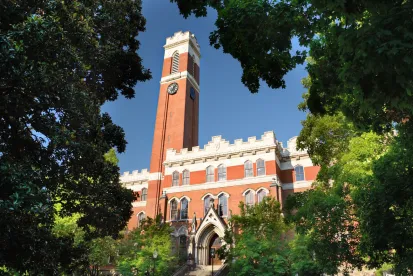The National Labor Relations Board (NLRB) has issued a Notice of Proposed Rulemaking to establish that “students who perform any services for compensation, including, but not limited to, teaching or research, at a private college or university in connection with their studies are not ‘employees’ within the meaning of Section 2(3) of the [National Labor Relations] Act.”
The proposed rule would “overrule extant precedent and return to the state of law as it existed from shortly after the Board first asserted jurisdiction over private colleges and universities in the early 1970s to 2000 and, with brief exceptions, for most of the time since then.”
The proposed rule is scheduled to be published in the Federal Register on September 23, 2019. Comment to the NLRB’s Notice of Proposed Rulemaking must be submitted within 60 days of publication in the Federal Register.
Review of NLRB’s Treatment of Student Workers
The Board has repeatedly shifted its position on the status of student workers under the National Labor Relations Act (NLRA). The Board first asserted jurisdiction over private colleges and universities in Cornell Univ., 183 NLRB 329 (1970). Shortly thereafter, in Adelphi University, 195 NLRB 639 (1972), the Board held that graduate student assistants are primarily students and should be excluded from a bargaining unit of regular faculty. Later, in The Leland Stanford Junior University, 214 NLRB 621, 623 (1974), the Board went further, holding that graduate student research assistants “are not employees within the meaning of Section 2(3) of the Act.” It found the research assistants were not statutory employees because, like the graduate assistants in Adelphi University, they were “primarily students.”
The Board continued to hold that student workers were not employees within the meaning of the Act until 2000. Then, in New York University, 332 NLRB 1205 (2000), the Board reversed course and held for the first time that certain university graduate student assistants were statutory employees. It stated, “[A]mple evidence exists to find that graduate assistants plainly and literally fall within the meaning of ‘employee’ as defined in Section 2(3).”
Just four years later, the Board reverted to its prior position. It held in Brown University, 342 NLRB 483 (2004), that graduate student teaching assistants, research assistants, and proctors in the petitioned-for bargaining unit were not statutory employees. The Board reasoned that “graduate student assistants, who perform services at a university in connection with their studies, have a predominately academic, rather than economic, relationship with their school” and, therefore, “[are] not employees within the intendment of the Act.”
Twelve years later, the Board again changed its position on the status of student workers. In Columbia University, 364 NLRB No. 90 (2016), the Board overruled Brown University and determined that an employment relationship can exist under the Act between a private college or university and its employee, even when the employee is simultaneously a student. The Board observed, “Statutory coverage is permitted by virtue of an employment relationship; it is not foreclosed by the existence of some other, additional relationship that the Act does not reach.” Thus, the NLRB said an individual “may be both a student and an employee; a university may be both the student’s educator and employer.”
Columbia University is the current law on the status of student workers as “employees” under the Act. Employees enjoy the collective bargaining rights and protections of the Act. The proposed rule would overrule this decision.
Proposed Rule
Issued with the support of the three Republican members of the Board over the dissent of the single Democrat Board member, the proposed rule states:
Students who perform any services, including, but not limited to, teaching or research assistance, at a private college or university in connection with their undergraduate or graduate studies are not employees within the meaning of Section 2(3) of the Act.
The Board majority states that the proposed rule “is intended to bring stability to an area of federal labor law in which the Board, through adjudication, has reversed its approach three times since 2000.”
The majority continued, “[T]he proposed rule is based on the view that the common-law definition of employee is not conclusive because the Act, and its policy promoting collective bargaining, ‘contemplates a primarily economic relationship between employer and employee, and provides a mechanism for resolving economic disputes that arise in that relationship.’” It argues that the proposal is consistent with Supreme Court and Board precedent excluding managerial employees and workers without a sufficient economic relationship to an employer from the coverage under the Act as statutory employees.
Other considerations that support the conclusion that student workers are not “employees” within the meaning of the Act include:
-
The services student workers perform often are a prerequisite to obtaining their degree;
-
Student workers spend a limited amount of time performing these additional duties for which they are compensated because their principal time commitment is focused on their coursework and studies;
-
The goal of faculty in advancing their students’ education differs from the interests of employers and employees engaged in collective bargaining, who “proceed from contrary and to an extent antagonistic viewpoints and concepts of self-interest.” (Quoting NLRB v. Insurance Agents, 361 U.S. 477, 488 (1960).) Faculty members educate, evaluate, and mentor students. Collective bargaining over those matters appears to be inappropriate given that faculty and students are engaged in an individualized learning experience; and
-
Not asserting jurisdiction over relationships that are “primarily educational” advances the important policy of protecting traditional academic freedoms. These freedoms include both free speech rights in the classroom and several matters traditionally in the domain of academic decision-making.
In addition to seeking comments on the proposed rule, the Board also invites comments on whether the rule should apply to exclude from the Act’s coverage students employed by their own educational institution in a capacity unrelated to their course of study due to the “very tenuous secondary interest that these students have in their part-time employment.”
Dissent
The dissenting NLRB member, Lauren McFerran, was a member of the majority in Columbia University. Member McFerran urges the Board to continue to adhere to the proposition that the Act can afford coverage to student workers who have both an educational and economic relationship with their colleges and universities. The dissent contends that the majority offers no empirical evidence to support their claim that coverage under the Act is inconsistent with its underlying policies. She also points to the limited instances where private colleges and universities have reached agreements with student worker unions since Columbia University and the long history of graduate student unionization at public institutions as support for the proposition that recognizing student workers as employees is consistent with the Act’s goal of promoting collective bargaining. Finally, McFerran suggests that rather than promoting greater stability on campuses, the proposed rule “will raise the specter of renewed unrest on campus” because “[t]he desire of student employees for union representation and for better working conditions will not go away simply because the Board has closed its doors.”
What Lies Ahead?
The Board likely will receive thousands of comments from colleges, universities, graduate student organizations, and labor unions advocating for and against adoption of the proposed rule. A flurry of organizing activity from graduate student unions followed Columbia University. Then, after nominees of President Donald Trump became the majority on the Board, several unions withdrew their petitions to avoid providing the new majority an opportunity to review and overrule Columbia University. Many student groups, those who won Board elections and those who did not, have engaged in campaigns to pressure private colleges and universities to bargain with them or to voluntarily recognize them and engage in bargaining.
Regardless of the outcome of the rulemaking process, these pressure tactics, including graduate students' strikes, will continue.









 />i
/>i
